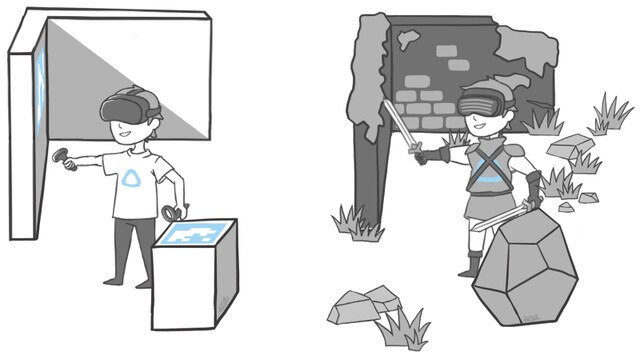-
简介
-
追踪模式
-
ArUco 标记和基于标记的追踪功能
-
基于标记的追踪功能
-
-
基于标记的位置共享设置
-
LBE 模式/LBE 混合模式设置
-
LBE 地图配置
-
基于标记的防漂移设置
-
基于标记的高级重新定位设置
-
基于标记的场景对齐设置
-
VR 模拟器模式设置
-
其他服务
-
更多功能
基于标记的场景对齐
基于标记的场景对齐可将虚拟场景与物理环境对齐。
基于标记的场景对齐通过将一个或两个 ArUco 标记的位置数据嵌入为 LBE 模式或 LBE 混合模式创建的虚拟地图中来对齐虚拟场景与物理环境。LBE 地图的空间坐标根据 ArUco 标记提供的位置数据与虚拟场景对齐。

在基于标记的场景对齐中,LBE 地图与头戴式设备和虚拟场景共享,允许头戴式设备根据 LBE 地图的空间坐标与场景对齐。这与基于标记的位置共享不同,后者使用ArUco标记提供的位置数据与游玩区的其他玩家共享其位置。
通过基于标记的场景对齐,可以将物理环境中的结构元素(如墙壁和柱子)整合到虚拟世界中,从而创建更逼真和身临其将的虚拟现实体验。
有关设置基于标记的场景对齐的详细信息,请参见基于标记的场景对齐设置。
此内容对您有帮助吗?
是
否
提交
谢谢!您的反馈可以帮助其他人了解最有用的信息。